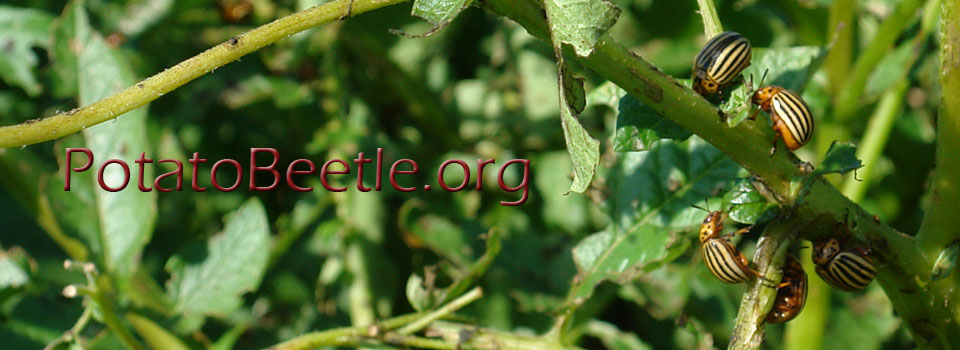Gómez-Gallego, C., M. J. Rainio, M. C. Collado, A. Mantziari, S. Salminen, K. Saikkonen, M. Helander, FEMS Microbiology Letters, Volume 367, Issue 6, March 2020, fnaa050, https://doi.org/10.1093/femsle/fnaa050
Here, we examined whether glyphosate affects the microbiota of herbivores feeding on non-target plants. Colorado potato beetles (Leptinotarsa decemlineata) were reared on potato plants grown in pots containing untreated soil or soil treated with glyphosate-based herbicide (GBH). As per the manufacturer's safety recommendations, the GBH soil treatments were done 2 weeks prior to planting the potatoes. Later, 2-day-old larvae were introduced to the potato plants and then collected in two phases: fourth instar larvae and adults. The larvae's internal microbiota and the adults’ intestinal microbiota were examined by 16S rRNA gene sequencing. The beetles’ microbial composition was affected by the GBH treatment and the differences in microbial composition between the control and insects exposed to GBH were more pronounced in the adults. The GBH treatment increased the relative abundance of Agrobacterium in the larvae and the adults. This effect may be related to the tolerance of some Agrobacterium species to glyphosate or to glyphosate-mediated changes in potato plants. On the other hand, the relative abundances of Enterobacteriaceae, Rhodobacter, Rhizobium and Acidovorax in the adult beetles and Ochrobactrum in the larvae were reduced in GBH treatment. These results demonstrate that glyphosate can impact microbial communities associated with herbivores feeding on non-target crop plants.
